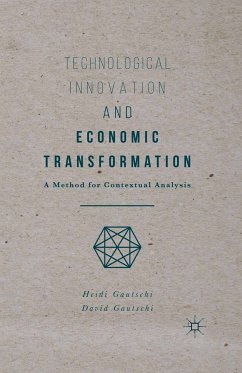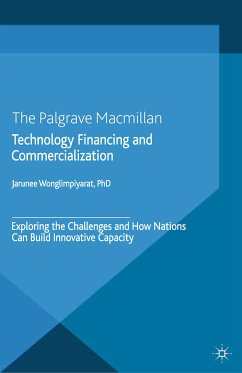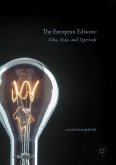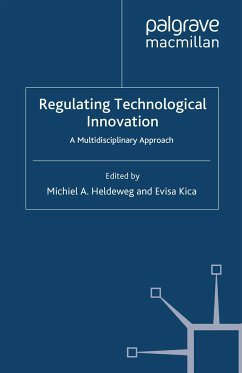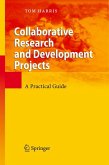Technological Innovation and Econoimic Transformation.
Type of audience: as presently configured the proposal suggests an academic audience, but its interest-the use of a constant methodology in changing contexts over time-is a subject for a very wide audience. The proposal could be presented, though, in an easy to read format, widely accessible to the general public. The source of this dichotomy in presentation is readily identified: both Gautschi's are academics and have written the proposal to address academic criteria; but Heidi Gautschi has solid experience as a journalist and could edit the proposal for a broader audience. That audience could be: business administration, economics, political science, historiography.
The interest of this book is that it uses a method of historiography which is impregnated with options. What the authors are arguing is that it was special circumstances that led to the adoption of a particularly technology; that those circumstances having in their illustrations become part of the landscape, tend not to be challenged, so that 'innovations' are as often as not modifications to minor changes within the scope of the original paradigm. Choices were taken, and options discarded. History is thus not an account of what happened, but of why X was chosen when W, Y and Z were the options.
In terms of the structure, the reader will be able to follow that argument, which is built in a sequential mode, ending in illustrative case studies. This is a highly innovative proposal: at its heart is the idea of the future as options; it provides a structured method of analyzing context; it should be noted that Heidi Gautschi brings to the table and deep understanding of the French literature, which has taken quite different paths to that of the English speaking world. I refer to the work of Claude Levi Strauss and Cornelius Castoriadis; and the cases are all significant(nuclear; air travel; higher education).
I thoroughly recommend this proposal. If I have a suggestion, I would propose that the authors' last chapter bbe a broad brush discussion of how their approach could be applied to all manner of policy discussions, debates about technology choices, or approaches by firms to the subject of resources and innovation.
Type of audience: as presently configured the proposal suggests an academic audience, but its interest-the use of a constant methodology in changing contexts over time-is a subject for a very wide audience. The proposal could be presented, though, in an easy to read format, widely accessible to the general public. The source of this dichotomy in presentation is readily identified: both Gautschi's are academics and have written the proposal to address academic criteria; but Heidi Gautschi has solid experience as a journalist and could edit the proposal for a broader audience. That audience could be: business administration, economics, political science, historiography.
The interest of this book is that it uses a method of historiography which is impregnated with options. What the authors are arguing is that it was special circumstances that led to the adoption of a particularly technology; that those circumstances having in their illustrations become part of the landscape, tend not to be challenged, so that 'innovations' are as often as not modifications to minor changes within the scope of the original paradigm. Choices were taken, and options discarded. History is thus not an account of what happened, but of why X was chosen when W, Y and Z were the options.
In terms of the structure, the reader will be able to follow that argument, which is built in a sequential mode, ending in illustrative case studies. This is a highly innovative proposal: at its heart is the idea of the future as options; it provides a structured method of analyzing context; it should be noted that Heidi Gautschi brings to the table and deep understanding of the French literature, which has taken quite different paths to that of the English speaking world. I refer to the work of Claude Levi Strauss and Cornelius Castoriadis; and the cases are all significant(nuclear; air travel; higher education).
I thoroughly recommend this proposal. If I have a suggestion, I would propose that the authors' last chapter bbe a broad brush discussion of how their approach could be applied to all manner of policy discussions, debates about technology choices, or approaches by firms to the subject of resources and innovation.

